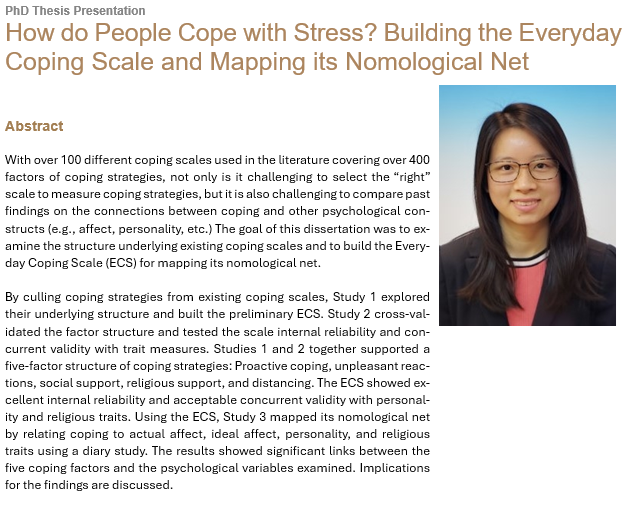Abstract
With over 100 different coping scales used in the literature covering over 400 factors of coping strategies, not only is it challenging to select the “right” scale to measure coping strategies, but it is also challenging to compare past findings on the connections between coping and other psychological constructs (e.g., affect, personality, etc.) The goal of this dissertation was to examine the structure underlying existing coping scales and to build the Everyday Coping Scale (ECS) for mapping its nomological net.
By culling coping strategies from existing coping scales, Study 1 explored their underlying structure and built the preliminary ECS. Study 2 cross-validated the factor structure and tested the scale internal reliability and concurrent validity with trait measures. Studies 1 and 2 together supported a five-factor structure of coping strategies: Proactive coping, unpleasant reactions, social support, religious support, and distancing. The ECS showed excellent internal reliability and acceptable concurrent validity with personality and religious traits. Using the ECS, Study 3 mapped its nomological net by relating coping to actual affect, ideal affect, personality, and religious traits using a diary study. The results showed significant links between the five coping factors and the psychological variables examined. Implications for the findings are discussed.

